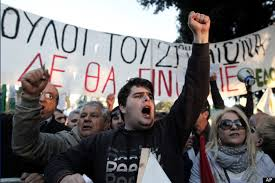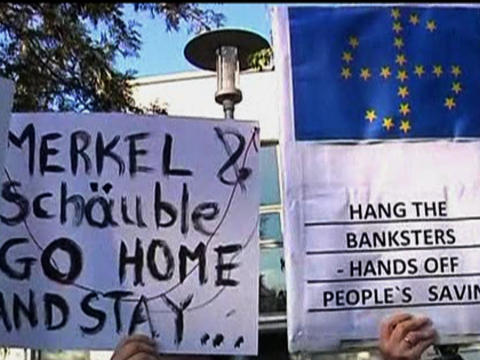Cyprus: lessons from a "casino economy"

LONDON -- In 2008, I remember the feelings of dismay felt by savers who had deposited funds into Icelandic banks offering strong returns on deposit accounts.
This money was held on deposit, remember, and not invested into shares in the banks. As the tragedy unfolded and the banks collapsed, people could do little but watch and see what would happen to their savings. Five years later, what have we learned. Very little it seems as savers have looked to Cypriot banks to find deposit returns in excess of values available elsewhere.
Included in these were people that had built personal savings over a number of years and through no fault of their own have found themselves at the rough end of the financial ‘stick’. Cypriots gathered at Orthodox churches around the country today to pray for their crisis-hit island. Worried shoppers were panic buying at supermarkets in Cyprus as the World Bank warned a meltdown on the island could be contagious and infect the economies of other vulnerable nations. Nicosia reportedly agreed with its lenders on a 20 per cent levy on bank deposits over €100,000 at its largest lender, Bank of Cyprus, and 4 per cent on deposits above the same level at other banks. Meanwhile, the central bank in Cyprus imposed a €100 per day withdrawal limit at cash machines for all local banks to avert a run on lenders.
President Nicos Anastasiades flew to Brussels for talks as the island sought an 11th-hour reprieve from disaster, with a bailout from the EU and its place in the euro hanging in the balance. Meanwhile, French Finance Minister Pierre Moscovici told Canal Plus: ‘to all those who say that we are strangling an entire people... Cyprus is a casino economy that was on the brink of bankruptcy.’ Supermarket supplies were said to be running low in some areas of Cyprus as the EU's economic affairs chief said there were now ‘only hard choices left’ for the latest casualty of the eurozone crisis.
The Cypriot overgrown banking sector has been crippled by exposure to crisis-hit Greece and the EU said the island must raise €5.8billion on its own before it can receive a €10billion bailout. Without a deal the European Central Bank said it will cut off emergency funds to Cypriot banks. This could spell certain collapse and potentially push the country out of the euro zone. President Anastasiades, barely a month in the job and wrestling with Cyprus's worst crisis since a 1974 invasion by Turkish forces, is expected to meet heads of the EU, the ECB and IMF.
In a stunning vote last week, Cyprus's 56-seat parliament rejected a levy on depositors, big and small, and Sarris spent three fruitless days in Moscow trying to win help from Russia.
Their citizens have billions of Euros at stake in Cypriot banks. Rebuffed by the Kremlin, Sarris said a levy was back ‘on the table.’ A Cypriot plan to tap pension funds had already been shelved amid opposition from Germany, who warned the measure might be even more painful for ordinary Cypriots than a deposit levy. Ordinary Cypriots have been outraged by the levy and stunned at the pace of the drama.
They elected President Anastasiades in February on a mandate to secure a bailout and save banks but for the past week they have been besieging cash machines ever since bank doors were closed by the government. A run on banks is now anticipated when they reopen.
We sit and wait to see how this latest twist is played out and hope that we don’t see the expected contagion in other eurozone areas. At time of writing we learn that there has been an agreement to an 8.5 billion rescue package based upon a tax of 40 percent on bank deposits over 100,000 euros.
Against this background, now might be the time to move cash deposits into suitable non-deposit financial instruments …
We can help.
For personal and corporate financial advice, please contact our team at office@ImperiusEU.com



